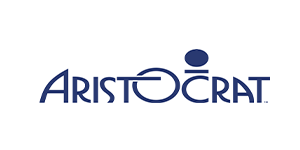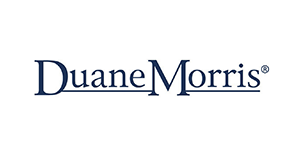- Home
- About IAGA
- Bylaws
- Our History
- Our Leadership
- Our News
- Events
- Membership
- Sponsorship
ARTICLE I • GENERAL PROVISIONS
Section 1. Name. The name of this nonprofit corporation is International Association of Gaming Advisors (the “Association”).
Section 2. Offices. The principal office of the Association shall be located in Clark County, Nevada. The Board of Trustees of the Association (the “Board of Trustees” and, each member thereof, a “Trustee”) may from time to time change such principal office and establish such other offices as the Board of Trustees designates or as the affairs and activities of the Association require.
ARTICLE II • PURPOSE
The Association shall have the purposes set forth in Article V of the Association’s Articles of Incorporation (as amended and restated from time to time, the “Articles”). The Association shall do and perform such acts as may be necessary or appropriate to carry out such purposes and may exercise any of the powers granted to nonprofit corporations by the laws of the State of Nevada including NRS Chapter 82, consistent with the Association’s status as an organization exempt from federal income tax under Section 501(c) of the Internal Revenue Code of 1986, as amended (or corresponding provisions of any future federal tax code or United States revenue law). The mission and goals of the Association are to conduct charitable and educational services that are associated with the Association’s stated purposes as allowed by law.
ARTICLE III • MEMBERSHIP
Section 1. Eligibility for Membership. Application for voting membership shall be open to any person or entity who supports the purpose statement set forth in the Articles and Article II of these Bylaws (as amended from time to time, these “Bylaws”), including, without limitation, persons and entities involved in the gaming industry. Membership may be granted after the completion and receipt of a membership application and payment of annual dues to the Association. Memberships are non-transferrable and non-refundable. Within thirty (30) days of receipt of an application of a prospective member, the Board of Trustees may, by the vote of at least two-thirds (2/3) of the Board of Trustees, deny membership to such applicant for any reason.
Section 2. Annual Dues; Classes of Members. All members of the Association (the “Members”) shall pay annual membership dues to the Association in such amounts and in such manner as the Executive Committee (hereinafter defined) determines from time to time. Continued membership is contingent upon being current on any membership dues due and owing to the Association. The Executive Committee, in its discretion, may divide membership into one or more classes of Members and set different voting rights and different dues for each such class. As of the date of the adoption of these Bylaws, the Executive Committee has established the classes of Members as are identified on Schedule III(2)attached hereto and incorporated herein by this reference, which classes may be modified in whole or in part in the discretion of the Executive Committee from time to time.
Section 3. Annual Business Meeting. The Association shall hold an annual meeting of the Members. The business to be conducted shall include, but not be limited to, elections and/or appointments of Trustees, amending the Bylaws and/or the Articles and reports from Committee (as defined in Article VII) chairpersons and/or key personnel. Notice of the annual meeting shall be given to the Members by the Board of Trustees or designated agents of the Board Trustees not less than ten (10) days and not more than sixty (60) days prior to the meeting. The time and place of the annual meeting shall be determined by the Board of Trustees. Meetings may be conducted in person or through electronic communications in accordance with the provisions of Section 14 of Article IV.
Section 4. Voting Rights of Members. Each voting Member shall be eligible to cast one (1) vote in elections and any other matter that is submitted by the Board of Trustees to the general membership for approval.
Section 5. Proxies. Each voting Member of the Association entitled to vote at any meeting thereof may vote by proxy by such Member appointing his or her duly authorized attorney in fact. A proxy shall be in writing and revocable at the pleasure of the Member executing it. No proxy is valid after the expiration of six (6) months from the date of its creation unless coupled with an interest, or unless the Member specifies a longer term in the proxy; provided, however, that such longer period may not exceed seven (7) years. Every proxy so created shall continue in full force and effect until its expiration or revocation in a manner provided by the laws of the State of Nevada.
Section 6. Termination of Membership. A Member’s membership in the Association shall terminate upon the occurrence of any of the following events:
(a) Resignation. Upon the delivery of a written resignation with the Secretary of the Board of Trustees or his or her designee as approved by the Board of Trustees. Such resignation shall take effect at the time specified in the notice, and acceptance of such resignation shall not be necessary to be made effective.
(b) Dissolution. Upon dissolution of a Member, if such Member is not a natural person.
(c) Failure to Pay Membership Dues. Upon failure of a Member to pay membership dues in a timely fashion. If a Member’s dues are sixty (60) days past due, such Member shall be notified of its delinquency. If the dues are not paid within sixty (60) days of such notice of delinquency, such Member’s membership may be terminated. The Board of Trustees, in its sole discretion, may waive the membership dues for any Member or waive the timeliness requirement and allow the Member to continue to be a full Member with a membership account due and owing. The Board of Trustees may also waive or forgive membership dues for any Member upon that Member’s application to the Board of Trustees for such relief and good cause shown therefor.
(d) Removal. Any Member may be removed for any reason by the vote of at least two-thirds (2/3) of the Board of Trustees. Termination shall not relieve a Member of unpaid dues or other charges previously accrued by the Member, and the Member shall not be entitled to reimbursement of any previously paid dues or other charges upon such Member’s termination.
ARTICLE IV • BOARD OF TRUSTEES
Section 1. General Powers. Except as otherwise provided in NRS Chapter 82, the Articles or these Bylaws, the business and affairs of the Association shall be conducted and managed under the direction of, and the control and disposal of the Association’s properties and funds shall be vested in, the Board of Trustees.
Section 2. Number, Tenure and Qualifications. The Board of Trustees shall consist of not less than one (1) and not more than twenty-five (25) individuals, plus two (2) individuals as may be appointed by the Counselors of IAGA (as defined in Section 5 of Article VII). The number of Trustees within the foregoing fixed minimum and maximum may be established and changed from time to time by resolution adopted by the Board of Trustees without amendment to these Bylaws or the Articles. The total number of Trustees (including those appointed by the Counselors of IAGA) shall be divided into three (3) groups, with each group containing one-third (or as near as can be) the total number of Trustees arranged so that the term of the Trustees in each group expire together in either (i) the current fiscal year, (ii) the next fiscal year, or (iii) two fiscal years. Without limiting Section 8 of this Article IV, annual elections of Trustees whose terms expire at that meeting shall be held at each annual meeting of the Board of Trustees. Each Trustee shall hold office for a term of three (3) years and until his or her successor shall be elected or appointed and qualified or until his or her earlier death, retirement, disqualification, resignation or removal; provided, however, that no Trustee shall serve more than two (2) consecutive three (3) year terms without the express consent of the Executive Committee authorizing such Trustee to serve one (1) or more additional three (3) year terms. No decrease in the number of Trustees shall have the effect of shortening the term of office of any incumbent Trustees
Section 3. Officers as Ex-Officio Members of the Board of Trustees. All officers shall be ex-officio members of the Board of Trustees during their terms as officers of the Association. Additionally, upon the expiration of the term of the President of the Association, the person serving in such capacity shall serve as an ex-officio member of the Board of Trustees for an additional term of three (3) fiscal years. All ex-officio member of the Board of Trustees shall be entitled to vote as a Trustee, but they shall not be counted for purposes of establishing the minimum and maximum number of Trustees permitted under Section 2 of this Article IV.
Section 4. Nomination of Trustees. Trustee nominees and recommendations for Trustee nominees may be submitted in writing by incumbent Trustees, or by officers or staff of the Association, to the Nominating Committee (hereinafter defined) of the Association or, if the Association does not have a Nominating Committee, to the Chair or Secretary of the Association. If the Association has a Nominating Committee, such committee shall, after giving due consideration to such recommendations and such other persons as it may wish to consider, present its proposed slate of nominees to the Board of Trustees. At a minimum, a qualified candidate for the position of Trustee shall (i) be an active Member of the Association for at least two (2) years, and (ii) have attended at least one (1) Association-sponsored event for each year of such Membership.
Section 5. Duties of Trustees. The basic responsibilities of the Board of Trustees shall include, but not be limited to: (i) determining the Association’s mission and purpose; (ii) supporting and evaluating the Executive Director with the goals of the Association in mind; (iii) ensuring effective organizational planning; (iv) determining which of the Association’s programs are consistent with its mission and monitoring the effectiveness of these programs; (v) securing adequate financial resources for the Association to fulfill its mission; (vi) defining prerequisites for potential new Board of Trustees members; and (vii) adhering to legal and ethical standards and norms. In furtherance of these responsibilities and as a condition to maintaining his or her seat as a Trustee, each Trustee is expected to: (a) attend at least two (2) meetings each year; (b) participate in at least one Committee; (c) attend the Association’s annual summit at least every other year; (d) contribute to the financial health of the Association through active participation, advocacy and/or fundraising; and (e) chair or co-chair at least one Committee.
Section 6. Removal; Resignation. Any Trustee may be removed, at any time and for any reason or no reason, by the vote of a majority of the Board of Trustees. Any Trustee may resign at any time either by oral tender of resignation at any meeting of the Board of Trustees or by giving written notice thereof to the President or Secretary of the Association. Such resignation shall take effect at the time specified in the oral tender or written notice and, if not specified, immediately upon receipt. Acceptance of such resignation shall not be necessary to make it effective. For the avoidance of doubt, no resigning Trustee shall be entitled to name a substitute or replacement Trustee; and all such determinations shall be the responsibility of the remaining Trustees exercised under Section 8 of this Article IV.
Section 7. Repeated Unexcused Absences. The Association believes that the engagement of its Trustees are critical to the health and success of the Association. Accordingly, if any Trustee fails to attend at least two (2) regular meetings of the Board of Trustees in any fiscal year (without receiving an excused absence by a majority of the Trustees present at any such meeting(s)), then such Trustee shall be deemed to have resigned from the Board of Trustees and his or her seat shall be filled according to the vacancy provisions of these Bylaws.
Section 8. Vacancies. Any vacancy occurring on the Board of Trustees for any reason, including as a result of an increase in the number of Trustees constituting the Board of Trustees, shall be filled by the affirmative vote of a majority of the remaining Trustees then in office, even if less than a quorum. A Trustee elected to fill a vacancy shall be elected for the unexpired term of his or her predecessor and until his or her successor is elected and qualified or until his or her earlier death, resignation or removal.
Section 9. Annual Meetings. The annual meetings of the Board of Trustees shall be held at the place and time determined by the Board of Trustees, for the purpose of electing Trustees and officers and for the transaction of such other business as may properly come before the meeting. The annual meetings of the Board of Trustees shall in all events be conducted in reasonably close proximity but prior to the annual meeting of the Members as provided for in Section 3 of Article III. Regular meetings shall be held on such date and at such time as may be designated from time to time by the Board of Trustees. Notice of annual and regular meetings of the Board of Trustees need not be given, but if given such notice shall be given in accordance with Section 8 of this Article IV.
Section 10. Special Meetings. Special meetings of the Board of Trustees may be called by the President whenever he or she deems it necessary, and shall be called by the President upon the request to do so in writing by a majority of the Board of Trustees. The President shall fix the place and time for holding any special meeting of the Board of Trustees.
Section 11. Notice. Notice of any annual or regular meeting of the Board of Trustees, stating the place, day and hour of such meeting, may be given to each Trustee at his or her last known business or home address at least ten (10) days prior to such meeting by the mailing of written notice, by personal delivery of written notice or by telephonic or electronic transmission of notice (and the method of notice need not be the same for each Trustee). Notice of any special meeting of the Board of Trustees, stating the purpose, place, day and hour of the meeting, shall be given to each Trustee at his or her last known business or home address at least five (5) days and not more than thirty (30) days prior to such meeting by the mailing of written notice, by personal delivery of written notice or by telephonic, facsimile or electronic transmission of notice (and the method of notice need not be the same for each Trustee). If mailed, such notice shall be deemed to be delivered when deposited in the United States mail, with postage thereon prepaid. If sent by facsimile, e-mail or other electronic transmission, such notice shall be deemed to be delivered when directed to the fax number or e-mail address consented to by the Trustee, or by posting on an electronic network together with notice to the Trustee of the posting or the giving of separate notice.
Section 12. Waiver of Notice. Any Trustee may waive receipt of notice of any meeting before, at or after such meeting. The attendance of a Trustee at a meeting shall constitute a waiver of notice of such meeting except where a Trustee attends a meeting for the express purpose of objecting to the transaction of any business because the meeting is not lawfully called or convened. Unless otherwise required by law or specified by the Articles or these Bylaws neither the business to be transacted nor the purpose of any annual meeting of the Board of Trustees need be specified in the notice or the waiver of notice of such meeting.
Section 13. Quorum and Manner of Acting. One-third (1/3) of the Trustees shall constitute a quorum for the transaction of business of any meeting of the Board of Trustees, provided that, if at any time the Board of Trustees consists of less than ten (10) members then a majority of the Trustees shall constitute a quorum. Each Trustee shall be entitled to one vote and, if a quorum is present, the vote of a majority of the Trustees present in person at a meeting shall be the act of the Board of Trustees, unless a greater number is required by the Articles, these Bylaws or by the NRS. If less than a quorum is present at a meeting, a majority of the Trustees present may adjourn the meeting from time to time without further notice other than announcement at the meeting, until a quorum is present.
Section 14. Meetings Through Electronic Communications. Members of the Board of Trustees or of any Committee may participate in a meeting of the Board of Trustees or such Committee, as applicable, by any means of electronic communications, videoconferencing, teleconferencing or other available technology permitted under the NRS including, without limitation, a telephone conference or similar method of communication by which all individuals participating in the meeting can hear each other. If any such means are utilized, the Association shall, to the extent required under the NRS, implement reasonable measures to (a) verify the identity of each person participating through such means as a trustee or member of the Committee, as the case may be, and (b) provide the Trustees or members of the Committee a reasonable opportunity to participate in the meeting and to vote on matters submitted to the Trustees or members of the Committee, including an opportunity to communicate, and to read or hear the proceedings of the meeting in a substantially concurrent manner with such proceedings. Participation in a meeting pursuant to this Section constitutes presence in person at the meeting.
Section 15. Conflict of Interest. In the exercise of voting rights by members of the Board of Trustees, no individual shall vote on any issue, motion or resolution which directly or indirectly inures to her or his benefit financially. All conflicts of interest must be disclosed to the Board of Trustees. After disclosure is made, the Trustee with the conflicting interest must not participate in judging the merits of such interest and otherwise abstain from voting on or recommending a course of action with respect to the situation giving rise to the conflict. When such actions are properly observed, the conflict of interest has been properly discharged.
Section 16. Compensation. A Trustee shall serve without salary or other compensation. The actual and reasonable expenses of Trustees incurred for attendance at meetings or in connection with performance of their official duties may be paid or reimbursed by the Association upon approval of the Board of Trustees.
Section 17. Action Without a Meeting. Any action required or permitted to be taken at a meeting of the Board of Trustees or any Committee of the Board of Trustees may be taken without a meeting if a consent in writing, setting forth the actions so taken, is signed by a majority of the Trustees or Committee members entitled to vote upon such action at a meeting. Such action by written consent shall have the same force and effect as an affirmative vote of the Board or Committee members at a meeting. Such written consent (which may be signed manually or electronically or by any other means permitted by the NRS, and which may be in counterparts) shall be filed with the minutes of the proceedings of the meetings of the Board of Trustees. If any written consent is signed by less than all of the Trustees then in office, notice of such action shall be sent to those Trustees who did not sign the written consent within ten (10) days of the date of such consent.
Section 18. Presumption of Assent. A Trustee of the Association who is present at a meeting of the Board of Trustees at which action on any corporate matter is taken shall be presumed to have assented to the action taken unless his or her dissent shall be entered in the minutes of the meeting, or unless he or she shall file his written dissent to such action with the person acting as the Secretary of the meeting before the adjournment thereof or shall forward such dissent by registered mail to the Secretary of the Association immediately after the adjournment of the meeting or, if dissent is not noted when the minutes are circulated or approved, the dissenting Trustee may direct its inclusion. Such right to dissent shall not apply to a Trustee who voted in favor of such action.
Section 19. Vote by Secret Ballot. Voting for the election or removal of a Trustee shall be by secret written ballot if any Trustee so requests during any meeting.
ARTICLE V • OFFICERS
Section 1. Titles. The officers of the Association shall be (i) a President, (ii) a Vice President, (iii) a Secretary, (iv) a Treasurer, (v) an Assistant Treasurer, and (vi) a General Counsel. No individual may hold more than one office at a time. A Trustee that is elected as an officer shall, upon election, be deemed to have resigned from his or her position as a Trustee. All officers shall be ex-officio members of the Board of Trustees during their terms as officers and shall be entitled to vote as Trustees.
Section 2. Election and Term of Office. The officers of the Association shall be elected by the Board of Trustees at regularly scheduled meeting held after the election of Trustees, and shall take office immediately, all in accordance with the following:
(a) The term of office for each officer (other than the General Counsel) shall be one (1) year, or until his or her successor shall have been duly elected and qualified, or until his or her earlier death, resignation or removal.
(b) The term of office for the General Counsel shall be two (2) years, or until his or her successor shall have been duly elected and qualified, or until his or her earlier death, resignation or removal.
(c) At the conclusion of the Vice President’s one (1) year term, he or she shall automatically become the President for the next succeeding term of one (1) year.
(d) At the conclusion of the Secretary’s one (1) year term, he or she shall automatically become the Vice President for the next succeeding term of one (1) year.
(e) At the conclusion of the Treasurer’s one (1) year term, he or she shall automatically become the Secretary for the next succeeding term of one (1) year.
(f) At the conclusion of the Assistant Treasurer’s one (1) year term, he or she shall automatically become the Treasurer for the next succeeding term of one (1) year.
If the election of any officer is not held at meeting of the Board of Trustees held in conjunction with the Association’s annual summit, such election shall be held as soon as conveniently possible thereafter. New offices may be created and filled, and vacancies may be filled, at any meeting of the Board of Trustees.
Section 3. Nomination and Election of Assistant Treasurer. Assistant Treasurer nominees and recommendations for Assistant Treasurer nominees may be submitted in writing by incumbent Members in good standing, or by officers or staff of the Association, to the Nominating Committee of the Association or, if the Association does not have a Nominating Committee, to the President or Secretary of the Association at least sixty (60) days prior to the Board of Trustees’ meeting held in conjunction with the Association’s annual summit. If the Association has a Nominating Committee, such committee shall, after giving due consideration to such recommendations and such other persons as it may wish to consider, present to the Executive Committee a proposed “short list” of no more than three qualified (3) candidates for the position of Assistant Treasurer. At a minimum, a qualified candidate for the position of Assistant Treasurer shall (i) be an active Member of the Association for at least three (3) years, and (ii) have attended at least one (1) Association-sponsored event for each year of such Membership. The Executive Committee shall elect the Assistant Treasurer from the list provided by the Nominating Committee.
Section 4. Removal. Any officer may be removed by the Board of Trustees, with or without cause, whenever in its judgment the best interests of the Association would be served thereby. An officer removed from office will be automatically removed from the Board of Trustees, but such removal shall be without prejudice to the contract rights, if any, of the officer so removed. Election or appointment of an officer shall not in and of itself create contract rights.
Section 5. Resignations and Vacancies. Any officer may resign at any time by giving written notice to the President or Secretary. Any resignation shall take effect at the date of the receipt of such notice or at any later time specified therein and, unless otherwise specified in such notice, the acceptance of the resignation shall not be necessary to make it effective. Any resignation is subject to any rights or obligations under any existing contracts between the officer and the Association and is without prejudice to the rights, if any, of the Association. In the event of the resignation, removal, permanent disability, death or disqualification of any officer, the Board of Trustees shall fill the vacancy for the unexpired portion of the term.
Section 6. Authority and Duties of Officers. The officers of the Association shall have the authority and shall exercise the powers and perform the duties specified by the President, the Board of Trustees or these Bylaws, except that in any event each officer shall exercise such powers and perform such duties as may be required by law.
(a) President. The President shall be the chief executive officer of the Association and, as such, shall exercise general supervision of all operations of the Association, subject to the control of the Board of Trustees. The President shall set the agenda for and preside as chair at all meetings of the Board of Trustees. The President shall be an ex officio voting member of all Committees except the Nominating Committee (hereinafter defined). In the absence of the Secretary, the President or his or her designee has the power to attest and affix the corporate seal, if any, to any contract, deed, note or other instrument executed in the name of the Association. Except as provided in Article VI, all officers, agents and employees shall report and be responsible to the President. He or she shall perform such other duties as may be determined from time to time by the Board of Trustees.
(b) Vice President. The Vice President shall perform the duties of President in the event that the President is unable to do so. The Vice President shall also perform such functions as may be assigned by the President. The Vice President shall be responsible to deliver to the Board of Trustees at the Mid-year meeting his or her recommendations on the location of and dates for the conduct of the annual meeting of the Association and conferences for the next year, which recommendation shall include a preliminary budget.
(c) Secretary. The Secretary shall attend the meetings of the Board of Trustees and, to the extent feasible, the meetings of the Committees of the Board of Trustees, shall record or ensure that a record is maintained of the proceedings of all meetings of the Board of Trustees and Committees, and shall maintain or cause to be maintained a complete and updated list of the members of the Board of Trustees and all Committees, including the dates of election of each Trustee and Committee member. The Secretary shall also maintain or cause to be maintained a record of attendance of Trustees at meetings. The Secretary shall perform all duties incident to the office of Secretary and such other duties as may be assigned by the President or by the Board of Trustees. The Secretary shall have charge of all books, records, and papers of the Association, except those for which the Treasurer or some other person authorized to have charge thereof by the Board of Trustees has responsibility. The Secretary shall also have the power to attest and affix the corporate seal, if any, to any contract, deed, note or other instrument executed in the name of the Association. The Secretary shall provide or cause to be provided notice of meetings in accordance with these Bylaws and shall furnish certifications of Board actions, Bylaws and organizational documents. In the absence of the Secretary, the President shall appoint a person to act as Secretary of a particular meeting.
(d) Treasurer. The Treasurer shall be the chief financial officer of the Association and shall receive and deposit or cause to be received or deposited in a bank approved by the Board of Trustees all monies of the Association and keep or cause to be kept an accurate account thereof, review all financial statements, sign periodic financial reports and report or ensure that a report is made on the financial condition of the organization at annual meetings of the Board of Trustees and whenever requested by the Board of Trustees or President. No disbursement shall be made by or on behalf of the Association without the prior approval of the Treasurer and the prior written authorization of at least one member of the Executive Committee. The Treasurer shall ensure that the books of the Association are available for inspection by the President and the Board of Trustees. Upon the request of the Board of Trustees or President, the Treasurer shall make reports as may be required and work with outside accountants and auditors. The Treasurer shall perform all duties incident to the office of Treasurer and such other duties as may be assigned by the President or by the Board of Trustees.
(e) Assistant Treasurer. The Assistant Treasurer shall work closely with the Treasurer and shall assist with the maintaining and keeping the financial records of the Association, making disbursements on behalf of the Association and such other duties as may be necessary or appropriate. In the case of the absence or disability of the Treasurer, the Assistant Treasurer may perform the duties of the Treasurer.
(f) General Counsel. The General Counsel shall approve all contacts entered into by or for the benefit of the Association. He or she shall also review any requests for complimentary attendance at any Association meeting or for receipt of a stipend by any individual. The General Counsel shall supervise all litigation where the Association is a named party. The General Counsel cannot institute litigation on behalf of the Association without the approval of the Board of Trustees. The General Counsel shall advise the Executive Committee on legal matters.
Section 7.Compensation and Expenses. The salaries, if any, of the officers of the Association shall be fixed by the Board of Trustees from time to time, provided that compensation shall only be paid for personal services which are reasonable and necessary to carry out the purposes of the Association and shall not be excessive, and provided further that no compensation shall be paid to any government official, as defined in Section 4946(c) of the Code, or corresponding provisions of any subsequent U.S. federal tax laws. Reasonable expenses incurred in connection with performance of their official duties may be reimbursed to officers upon approval of the President or the Board of Trustees.
Section 8. Voting by Secret Ballot. Voting for the election or removal of an officer shall be by secret written ballot if any Trustee so requests during any meeting.
ARTICLE VI • EXECUTIVE DIRECTOR
The Board of Trustees, acting by and through the Executive Committee, may designate and appoint an Executive Director of the Association who is responsible for coordinating the day-to-day business of the Association. Candidates for the position of Executive Director shall be identified, vetted and recommended by the Executive Committee (hereinafter defined), and the recommendation of the Executive Committee may include proposed compensation. The Executive Director may be removed either with or without cause, at any time, by the Board of Trustees acting by and through the Executive Committee. The President shall have direct supervisory authority over the Executive Director, but the Executive Director shall report to the Executive Committee. The Executive Director shall have such power and authority as may be delegated to him or her by the Executive Committee.
ARTICLE VII • COMMITTEES OF THE BOARD
Section 1. Committees of the Board of Trustees. The President may designate and appoint one or more standing or special committees (each, a “Committee”). Each Committee shall consist of (a) one or more Trustees, (b) one or more non-Trustees, and (c) such other persons as the Board of Trustees may designate, who need not be members of the Board of Trustees, except as otherwise set forth in these Bylaws. Each Committee may exercise the authority granted to it pursuant to these Bylaws, by the President or the enabling resolutions of the Board of Trustees, except that no such Committee may take any action prohibited by NRS 82.206 (as amended from time to time or any successor statute). All Committees named in the Bylaws, by the President or mandated by the Board of Trustees must take minutes of all meetings, which will be maintained with the Association’s records by the Secretary. Rules governing procedures for meetings of any Committee may be established by the Board of Trustees or, in the absence thereof, by the Committee itself. All Committees are to report promptly to the Board of Trustees and to take only such actions as are specifically designated in these Bylaws or in the resolution establishing the Committee or setting forth its duties and responsibilities. Without limiting the generality of the foregoing, as of the date of these Bylaws, the Board has created or is considering creation of those Committees identified on Schedule VII(1) attached hereto and incorporated herein by this reference.
Section 2. Removal. Any member of a Committee may be removed by the President or the Board of Trustees whenever, in the judgment of either of them, the best interests of the Association would be served thereby.
Section 3. Term. Each member of a Committee shall serve until the next annual meeting of the Board of Trustees, or until a successor is appointed, unless the Committee shall be earlier terminated or unless any such member is removed from such Committee, or unless such member shall resign or cease to be qualified as a member thereof. Any member of a Committee may resign at any time either by oral tender of resignation at any meeting of such Committee or by giving written notice thereof to the President or Secretary of the Association.
Section 4. Committee Vacancies. The Committees shall have the power to fill vacancies in their membership.
Section 5. Committee of Counselors. A special Committee of the Association is hereby formed to be known as the “Counselors of IAGA” whose activities shall be governed by the Bylaws of the Counselors of IAGA. A copy of the Bylaws of the Counselors of IAGA effective as of the date of these Bylaws is attached hereto as Schedule VII(5) and incorporated herein by this reference.
ARTICLE VIII • CORPORATE SEAL
The Board of Trustees may, but is not required to, adopt a corporate seal of the Association.
ARTICLE IX • INDEMNIFICATION
Section 1. Definitions. For purposes of this Article IX:
(a) “Indemnitee” shall (a) mean each Trustee or officer who was or is a party to, or is threatened to be made a party to, or is otherwise involved in, any Proceeding (as hereinafter defined), by reason of the fact that he or she is or was a Trustee or officer of the Association or is or was serving in any capacity at the request of the Association as a Trustee, officer, employee, agent, partner, member, manager or fiduciary of, or in any other capacity for, another corporation, partnership, joint venture, limited liability company, trust, or other enterprise (including an employee benefit plan) and (b) include a person who has ceased to be a Trustee or officer of the Association or a Trustee, officer, employee, agent, partner, member, manager or fiduciary of, or to serve in any other capacity for, another corporation, partnership, joint venture, limited liability company, trust or other enterprise, and shall inure to the benefit of his or her heirs, executors, administrators and legal representatives.
(b) “Proceeding” shall mean any threatened, pending, or completed action, suit or proceeding (including, without limitation, an action, suit or proceeding by or in the right of the Association), whether civil, criminal, administrative, or investigative, and any appeal therefrom.
Section 2. Right to Indemnification. Each Indemnitee shall be indemnified and held harmless by the Association to the fullest extent permitted by Nevada law against all judgments, fines, taxes, penalties, amounts paid in settlement and expenses, including attorneys’ fees, reasonably incurred or suffered by the Indemnitee in connection with any Proceeding; provided, that such Indemnitee acted in good faith and in a manner he or she reasonably believed to be in or not opposed to the best interests of the Association and, in any Proceeding that is criminal in nature, had no reasonable cause to believe that his or her conduct was unlawful.
Section 3. No Presumption. The termination of any Proceeding by judgment, order, settlement, conviction, or upon a plea of nolo contendere or its equivalent, shall not in itself create a presumption that the Indemnitee did not act in good faith and in a manner which he or she reasonably believed to be in or not opposed to the best interest of the Association or that, with respect to any Proceeding that is criminal in nature, he or she had reasonable cause to believe that his or her conduct was unlawful.
Section 4. No Right to Indemnification. The Association shall not indemnify an Indemnitee for any claim, issue or matter as to which the Indemnitee has been adjudged by a court of competent jurisdiction, after exhaustion of all appeals therefrom, to be liable to the Association or for any amounts paid in settlement to the Association, unless and only to the extent that the court in which the Proceeding was brought or other court of competent jurisdiction determines upon application that in view of all the circumstances of the case, the Indemnitee is fairly and reasonably entitled to indemnity for such amounts as the court deems proper. Except as so ordered by a court and for advancement of expenses pursuant to this Article IX, indemnification may not be made to or on behalf of an Indemnitee if a judgment or other final adjudication establishes that his or her acts or omissions involved intentional misconduct, fraud or a knowing violation of law and was material to the cause of action, and provided further, that no such indemnification shall be made with respect to any settlement or other non-adjudicated position of any Proceeding unless the Association has given its consent to such settlement or other disposition.
Section 5. Advancement of Expenses. The expenses of Indemnitees shall be paid by the Association or through insurance purchased and maintained by the Association or through other financial arrangements made by the Association, as they are incurred and in advance of the final disposition of any Proceeding, upon receipt of an undertaking by or on behalf of the Indemnitee to repay the amount if it is ultimately determined by a court of competent jurisdiction that he or she is not entitled to be indemnified by the Association.
Section 6. Non-Exclusivity of Rights. Nothing in this Article IX shall limit or affect any other right of any person to indemnification or expenses, including attorneys’ fees, under any statute, rule or regulation, any provision of the Articles or these Bylaws, or any insurance policy, contract, or otherwise. The Association may, by action of its Board of Trustees and to the extent provided in such action, indemnify employees and other persons as though they were Indemnitees.
Section 7. Insurance and Agreements. The Association may purchase and maintain insurance or make other financial arrangements on behalf of any Indemnitee for any liability and expenses asserted against or incurred by him or her. The Association is authorized to enter into agreements with any of its Trustees, officers, or employees extending rights to indemnification and advancement of expenses to such person to the fullest extent permitted by applicable law, or to provide such indemnification and advancement of expenses pursuant to a resolution of the Board of Trustees, but the failure to enter into any such agreement or to adopt any such resolutions shall not affect or limit the rights of such person pursuant to this Article IX.
Section 8. Authorization for Discretionary Indemnification. A person who has been successful on the merits or otherwise in the defense of any Proceeding or any claim, issue or matter therein shall be entitled to indemnification as authorized in this Article IX. Except as provided in the preceding sentence and unless ordered by a court, any indemnification under this Article IX, under any contract or otherwise, shall be made by the Association, if and only if, authorized in the specific case upon a determination that indemnification is proper in the circumstances. The determination shall be made (a) by the Board of Trustees acting by quorum consisting of Trustees who are not parties to the Proceeding, (b) if such a quorum is not obtainable, by independent legal counsel in a written opinion or (c) if a majority vote of a quorum consisting of Trustees who are not parties to the Proceeding so orders, by independent legal counsel in a written opinion.
Section 9. Amendments to Indemnification Rights. The provisions of this Article IX relating to indemnification shall constitute a contract between the Association and each of its Trustees and officers which may be modified as to any Trustee or officer only with that person’s consent or as specifically provided in this Section 9. Notwithstanding any other provision of these Bylaws relating to their amendment generally, any repeal or amendment of this Article IX which is adverse to any Trustee or officer shall apply to such Trustee or officer only on a prospective basis, and shall not limit the rights of an Indemnitee to indemnification with respect to any action or failure to act occurring prior to the time of such repeal or amendment. Notwithstanding any other provision of these Bylaws (including, without limitation, Article XII), no repeal or amendment of these Bylaws shall affect any or all of this Article IX so as to limit or reduce the indemnification in any manner unless adopted by the unanimous vote of the Trustees of the Association then serving, provided, that no such amendment shall have a retroactive effect inconsistent with the preceding sentence.
Section 10. Changes in Nevada Law. References in these Bylaws to Nevada law or the NRS or to any provision thereof shall be to such law as it existed on the date these Bylaws were adopted or as such law thereafter may be changed, provided that (a) in the case of any change which expands the liability of Trustees or officers or limits the indemnification rights or the rights to advancement of expenses which the Association may provide in this Article IX, or if any provision in this Article IX shall be determined at any time to be unenforceable in any respect, the other provisions shall not in any way be affected or impaired thereby and the rights to limited liability, to indemnification and to advancement of expenses provided in the Articles and/or these Bylaws shall continue as theretofore to the fullest possible extent and enforcement permitted by law, or (b) if any change permits the Association, without the requirement of any further action by Trustees, to limit further the liability of Trustees or officers or to provide broader indemnification rights or rights to the advancement of expenses than the Association was permitted to provide prior to such change, then liability thereupon shall be so limited and the rights to indemnification and the advancement of expenses shall be so broadened to the extent permitted by law.
ARTICLE X • MISCELLANEOUS
Section 1. Contracts. The Board of Trustees may authorize any officer or officers, or any agent or agents of the Association, in addition to the officers so authorized by these Bylaws, to execute and deliver any contract, agreement or instrument, including for the assignment, conveyance or encumbrance of property of the Association, in the name of and on behalf of the Association, and such authority may be general or confined to specific instances; however, the sale, lease or exchange of all of its property and assets shall be authorized only in the manner prescribed by applicable law.
Section 2. Checks and Payment Orders. All checks, drafts or orders for the payment of money notes or other evidences of indebtedness issued in the name of the Association, shall be signed by any two officers of the Association, provided that such payments may be made electronically by the Association’s certified public accountant, or other agents or employees of the Association may be designated as signatories on any account, if authorized by resolution of the Board of Trustees.
Section 3. Deposits. All funds of the Association shall be deposited to the credit of the Association in or with such banks, trust companies or other depositories as the Board of Trustees may select.
Section 4. Books and Minutes. The Association shall keep correct and complete books and records of account and financial statements and shall also keep minutes of the proceedings of its Board of Trustees and Committees. All books and records of the Association may be inspected by any Trustee or his or her accredited agent or attorney, or as otherwise set forth in these Bylaws, for any proper purpose and at any reasonable time.
Section 5.Gifts and Contributions. The Board of Trustees and officers of the Association may accept on behalf of the Association, in accordance with any gift acceptance or other policies and procedures adopted by the Board of Trustees, any designated contribution, grant, gift, devise or bequest consistent with its general tax-exempt purposes or for any special purpose of the Association. As so limited, donor designated contributions will be accepted for special funds, purposes or uses. Further, the Association shall retain sufficient control over all donated funds (including designated contributions) to assure that such funds will be used in a manner consistent with the restrictions contained in the grant and the Association’s tax-exempt purposes.
Section 6. Loans to Trustees and Officers. No loans or advances, other than customary travel advances, shall be made by the Association to any of its Trustees or officers.
ARTICLE XI • FISCAL YEAR
The fiscal year-end of the Association shall be October 31 of each calendar year.
ARTICLE XII • AMENDMENT OF BYLAWS
These Bylaws may be altered, amended or repealed, and new Bylaws may be adopted, by the affirmative vote of at least a majority of the Trustees at any annual or special meeting of the Board of Trustees. Any notice of a meeting at which these Bylaws are to be altered, amended or repealed, or new Bylaws may be adopted, shall include notice of such proposed action.
ARTICLE XIII • CONSTRUCTION AND DEFINITIONS
The rules contained in the then current edition of Robert’s Rules of Order govern the Association in all cases in which they are applicable, and in which they are not inconsistent with these Bylaws, the Articles or any applicable law.
* * * *
CERTIFICATION
The undersigned, as the duly elected Secretary of International Association of Gaming Advisors, a Nevada nonprofit corporation (the “Association”), does hereby certify that the Board of Trustees of the Association duly adopted the foregoing Bylaws of the Association dated as of October 31, 2023.
/s/ Harper Ko_____________________________________
Harper Ko, Secretary
Schedule III(2)
Classes of Members
Gaming Industry Advisors – Any individual actively working in the gaming industry for a law firm, a professional audit or accounting services firm, a compliance professional, or a consulting firm.
Gaming Industry Associate Advisors – Any Gaming Industry Advisor that has worked within the gaming industry for less than five years. Gaming Industry Associate Advisor members can hold Associate Advisor status for no more than three years.
Gaming Industry Regulators / Legislators – Any individual working for a state, tribal or national gaming regulatory agency or for a state or national legislative body.
Industry Operators – Any individual working for a gaming industry operator including but not limited to a commercial or tribal land-based casino, an online gaming operator, sports betting company or a lottery.
Industry Technology / Product Suppliers – Any individual working for a gaming industry equipment manufacturer, testing lab, a technology provider or a related company.
Academic / Non-Profit Members – Any individual employed on a full-time basis by an institution of higher education, working full time for a 501(c)(3) non-profit organization (or equivalent in another jurisdiction), or any person aged 20 years or older who is enrolled on a full-time basis as a student at an institution of higher education.
Schedule VII(1)
Committees of the Board of Trustees
The following Committees are proposed by the President and shall have such responsibilities as may be assigned to them by the President in consultation with the Executive Committee. The charters and/or bylaws of any Committee may be reviewed and approved by the President and the members of the Executive Committee:
Executive Committee – The Executive Committee shall be comprised of the officers of the Association and shall be responsible for administering the day-to-day operations of the Association.
Audit Committee – see attached Audit Committee Structure and Responsibilities.
Nominating Committee – The Nominating Committee shall be responsible for proposing persons for election as Trustees and officers and receiving nominations for the position of Assistant Treasurer at the next annual meeting of the Board of Trustees or, in the event of vacancies between annual meetings, proposing replacement Trustees and officers for election. When considering, evaluating and recommending possible candidates for the Board of Trustees, the Nominating Committee may consider such factors as gender, ethnicity, age, industry representation, geographic dispersion, the number, function and expertise of the Committee and the needs of the Board of Trustees and the Association. At all meetings of the Nominating Committee, a majority of the Committee members then in office shall constitute a quorum for the transaction of any business and an affirmative vote of a majority of the members of the Committee present at a meeting shall be necessary for the taking of any action. All actions of the Nominating Committee shall be reported to the Board of Trustees at its next meeting succeeding such action. Minutes of the proceedings of the Nominating Committee shall be maintained.
Governance Committee
Membership Committee
Sponsorship Committee
Regulator Relations
Conference Planning
Programming/Webinar
Diversity, Equity and Inclusion
Audit Committee Structure and Responsibilities
The Audit Committee shall have no less than three (3) members, each of whom must be a Member of the Association, and may have more if deemed appropriate by the Board. At least one of the members shall be a Trustee or Counselor of the Association, and a majority of the members should have the requisite financial experience to carry out the duties and responsibilities granted to the Audit Committee. No person serving as an officer of the Association or who has served as an officer of the Association within two (2) years from the date of appointment shall serve on the Audit Committee. Membership on the Audit Committee shall be for a term of three (3) years, and members may serve up to three (3) such terms, unless additional terms for any member are mutually agreed upon by the Board and the Audit Committee. The Chairman of the Audit Committee shall be designated by the Board.
(a) Role of Committee. The Audit Committee's role is one of oversight. The Executive Director of the Association is responsible for the preparation of the Association's monthly and annual financial statements, with assistance of accountants engaged by the Association, and the independent public accountants are responsible for auditing and opining on the annual financial statements. The Audit Committee recognizes that the Executive Director, such accountants, and the independent public accountants have more time, knowledge and detailed information about the Association than do the committee members. Consequently, in carrying out its oversight responsibilities, the Audit Committee is not providing any expert or special assurance as to the Association's financial statements or any professional certification as to the independent public accountants work.
(b) Duties and Responsibilities. The Audit Committee shall:
(1) Make recommendations to the Board with respect to the accounting and financial practices of the Association. Periodically report its findings, recommendations and actions to the Board, including, but not limited to, any issues that arise with respect to the quality or integrity of the Association's financial statements, the performance and independence of the independent public accountants and any other matters the Audit Committee deems appropriate or the Board requests;
(2) Advise the Board in the selection, compensation and termination of independent public accountants as auditors of the annual financial statements of the Association;
(3) Review and evaluate the scope and results of audits made by the independent public accountants, receive and review the audit opinion, annual financial statements and required communication reports made by such independent public accountants as well as any other reports made by such independent public accountants or any other reports related to the duties of the Audit Committee hereunder; and make recommendations and report to the Board with respect thereto;
(4) Meet with the independent public accountants at least annually in connection with the annual audit, which meeting can be delegated to the Chair;
(5) If determined by the Audit Committee to be necessary or appropriate, engage professionals and consultants at the Association's cost, to assist the Audit Committee in performing its duties;
(6) Review and report to the Board regarding internal control evaluations and recommendations of the independent public accountants in connection thereof;
(7) Designate a member to serve as the designated person under the Association's confidential mechanism for individuals to report suspected wrongful activity, including but not limited to, fraud, criminal activity, breaches of internal controls, conflicts of interest, violation of the Association's code of ethics, any other wrong doings by the Board, officers, employees or independent contractors of the Association or any persons having business dealings with the Association, which confidential mechanism includes procedures for the receipt, retention, investigation and/or referral of any such complaints; and periodically review and make recommendations regarding such confidential mechanism
(8) Maintain minutes of meetings;
(9) Periodically review and assess the adequacy of the Audit Committee's duties and make recommendations to the Board in connection therewith; and
(10) Perform such other tasks as directed by the Board or as the Audit Committee deems to be necessary or.
(c) Frequency of Meetings. The Audit Committee shall meet as frequently as it deems necessary to fulfill its duties and responsibilities to the Association, but no less than once each year, and shall report its activities and findings to the Board.
Schedule VII(5)
Bylaws of the Counselors of IAGA
[to be attached]
BYLAWS OF THE COUNSELORS OF IAGA
As Amended: October 8, 2018
ARTICLE 1
Section 1.The name of this special committee shall be the “Counselors of the International Association of Gaming Advisors” (“Counselors”).
Section 2.
The purpose of the Counselors shall be to support the programs of the International Association of Gaming Advisors (“IAGA”); to preserve the experience of the members of the Counselors for the benefit of the Association; to stimulate the interest of lawyers involved in the gaming industry in the activities of IAGA; and to provide members of the Counselors an opportunity to maintain the friendships developed among lawyers engaged in the gaming industry while active in the leadership of IAGA.
Section 3.
The activities of the Counselors shall be a part of the programs of IAGA. The Counselors may make such reports to the Board of Trustees as it deems proper, but the Counselors shall not have a voice outside the activities of IAGA and shall exercise its voice only through the Board of Trustees of IAGA. Members of the Counselors may attend all meetings of the Board of Trustees of IAGA as non-voting participants.
ARTICLE II • MEMBERSHIP, DUES, EXPENSES
Section 1. Membership.The criteria for membership in the Counselors of IAGA are participation in IAGA, service to IAGA or to the gaming industry, past service on the Board of Trustees of IAGA, or active sponsorship of IAGA’s programs and continued association with the officers, Trustees, and Counselors of IAGA. The Board of Trustees of IAGA may elect such additional IAGA members as Counselors based upon significant contributions to the goals and activities of IAGA.
Section 2. Dues.
The Counselors shall have no dues other than regular membership dues of IAGA. Although a Counselor is relieved of his/her obligation to pay regular dues commencing in the year the Counselor turns 70, a Counselor over 70 still has an obligation to pay conference fees at the member rate if attending the annual International Gaming Summit.
Section 3. Expenses.
The Board of Trustees of IAGA will appropriate sufficient funds for the necessary clerical and administrative expenses of the Counselors. All activities of the Counselors except clerical and administrative expenses, shall be self-supporting, unless the President or the Board of Trustees of IAGA specifically determines that such activity shall be supported by the funds of IAGA.
ARTICLE III • MEETINGS
Section 1. Annual Meeting.The Counselors shall hold an annual meeting at such time and place as the Chairman of the Counselors may select in conjunction with the President of IAGA.
Section 2. Other Meetings.
The Counselors may also hold meetings in conjunction with other meetings of IAGA as determined by the Chairman of the Counselors and the President of IAGA. The Chairman of the Counselors shall be responsible for the presentation of a professional program at any such meeting, if any. Administrative details for any such meeting shall be handled by the Board of Trustees in cooperation with the Chairman of the Counselors. Members of the Counselors shall attend such meetings at their own expense.
ARTICLE IV • OFFICERS AND COMMITTEES
Section 1. Officers.The sole officer of the Counselors shall be the Chairman. The Chairman shall be selected at the Annual Meeting by the Board of Trustees of IAGA. The officers of IAGA shall provide such support and services to the Counselors as may be reasonably requested.
Section 2. Committees.
The Chairman of the Counselors may designate and appoint members to such committees as are necessary to conduct the activities of the Counselors.
Section 3. Appointment of Voting Counselors.
The Counselors shall elect and appoint two (2) members as voting members to the Board of Trustees of IAGA. The voting members shall serve staggered two (2) year terms, with the longer serving voting member being nominated as Chairman of the Counselors for election by the Board of Trustees of IAGA. An alternative voting member shall be elected by the Counselors to serve in the event a voting member Counselor is unable to attend a Trustee meeting. The alternative member shall automatically become a voting Counselor upon the expiration of the longer serving voting Counselor’s Term.
ARTICLE V • AWARDS
Authority is hereby granted for establishment of a Counselors Award, which may be presented according to such rules and criteria as may be adopted by the Board of Trustees of IAGA for outstanding service or contribution to IAGA or the gaming industry.ARTICLE VI • AMENDMENTS
These Bylaws may be repealed or amended and new Bylaws adopted by the Board of Trustees of IAGA.






















